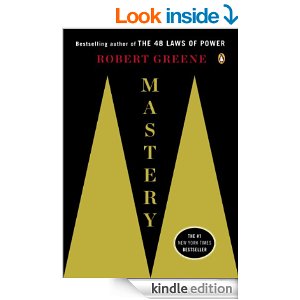How do you soft-land if your startup effort fails?
Tweet
rss
A friend asked me a curious question today. He shared that he was thinking about a startup, and asked what he can do to position himself to look good for a job search if that effort should fail. In other words, how do you make a soft-landing when your venture fails?
This is a soft landing - credit imgur
This friend currently works for a multi-national, but had worked in smaller ventures before. I told him that I have been underemployed for the past two years, and did not feel qualified to share helpful advice on the topic.
Rewind 2 Years
But the question stuck with me, and I had to think and write about it. Back in early 2012 (about two years ago), I was had the very same dilemma while I was working for the man. The man was called Intel Corporation. I made a decision to leave, and while I have no regrets, I made some mistakes. Maybe my experience will be useful to some folks out there like my friend.
There are two angles that are worth exploring. Before you quit your job, spend some time meditating on these aspects of your decision.
- Angle 1 - De-risking the unknown
- Angle 2 - Recognizing fear
My Story
It was two years ago, and I was very confused about it all. My key decision tree at the time was whether to stay in Portland, Oregon with Intel or move to San Francisco Bay Area to pursue a startup dream. Rightly or wrongly, my mental model was choosing stability AND boredom versus uncertainty BUT excitement. Intel was safe, but I disliked the idea that I was not building skills that might be valuable outside of that organization. Startup sounded sexy, but I was totally lost about how it would all turn out. I constantly worried that I was a wantrepreneur, and not a true startup success story. It turns out that I was a wantrepreneur for quite a long time, and I did not even know it.
Career decision tree 2 years ago
Notice the question marks. It is because we simply cannot know the future.
The Underpants Gnome Profit Plan
In a comical way, the situation is similar to the well-known South Park episode on making massive wealth by stealing underpants.
What happened to the middle part? The execution part? Which is in the future? We don't know. And I didn't know that I didn't know.
1. De-risking the unknown
I did not even know it. That's the key problem. Put yourself in my friend's shoes. If he leaves, and he fails, what shall become of him? How can he plan ahead such that he can find a reasonably role following the time spent in a new venture?
Well, here are some strategies for de-risking the next steps.
Avoid the wantrepreneur trap and validate first
I was recently talking to a successful entrepreneur. He surprised me when he said that “I am very conservative. I just make sure I talk to lots and lots and lots of people to make sure the idea is going to work before I write a single line of code.”
Best validation is customer payment
Before I quit Intel, I definitely tried to validate the viability of both the startup ideas and my abilities. First, I had a co-founder who had a track-record of success (de-risking technique). I talked to friends and potential customers (de-risking). We built a demo and showed it to people (de-risking for customers and for ourselves as a team). Heck, we got a Y Combinator interview, which I felt like was the ultimate validation. Right?
Wrong. What is the validation that you need? Dollars. Cash really is king. See if someone is willing to fork over a dime for your idea or product. This is why learning to make your first buck is so important. Go out and sell a lemonade. Learn something about the business and its value, not just build business plans.
One of the key strategies for doing this easily and quickly is to start super small. Lemonades, people. Lemonades! The masses thirst for your product!
Less talking, more doing
Speaking of selling lemonades, I remember hearing a story about a VC. The startup guys kept complaining about the high cost of customer acquisition as an excuse about why it was difficult to grow.
The VC went to Dolores Park in San Francisco, walked around, and asked people “Hey, if you sign up for this service, I will give you 5 bucks.” He signed dozens. He came back to the startup founders and said, “Your customer acquisition cost is 5 bucks. Now go sign on users.”
(For those of you not from San Francisco, Dolores Park is this crazy place where people hang out when it's warm and the sun comes out - which is pretty much most of the year.)
Dolores Park - credit: wikimedia.org
2. Recognizing fear
I am reading a book by Robert Greene about Mastery. You may recall that Robert Greene is the guy who wrote a book about 48 Laws of Power.
And
Greene's narrative is really insightful. He discerns patterns of how we gain mastery of a skill from studying past masters across various human disciplines: Mozart in music, Darwin in science, Benjamin Franklin in politics and business, plus modern-day role-models. He often refers to human brain and how it evolved to suit a pre-industrial age. Fear is an interesting case study.
Fear has an impact
Fear affects our decision making. When we worry about something, we are not making an optimal decision.
(I remember watching an animal experiment in which a child chimp is observed to play with and without a mother figure in the room. The one without mother withdraws from fear and does not explore the room, while the one with a mother figure happily and bravely explores the objects in the room. I can not easily recall where I saw this - help me out if you can.)
So, recognize that fear plays a role in your thought process. In my case, I was worried about success or failure, about soft-landing if things didn't work out. Could I return to Intel? Would I still be “marketable” as a professional? And so forth.
The problem here is that it misses the whole point of why I might want to do a startup in the first place. Basically, you are making a confused-decision, and possibly setting yourself up for a failure, because you are not confidently going forward. Fear zaps confidence. But, confidence is optimism is a key ingredient for success.
Back to the Brain
By the way, confidence and optimism is not a key ingredient for success because of some magic. Rather, your brain can process information more effectively and expansively when you are not oppressed by anxiety (go back to the chimp story above).
Perhaps this is why when Caesar crossed the Rubicon, he destroyed the bridge. It was one less thing his soldiers had to worry about. Less anxiety, more focus. No looking back, only looking forward.
That's it. Remove anxieties from your decision making. Don’t step back, step forward.
So, to recap: first, remove uncertainties about your next steps by being action-oriented. Step two, apply your personal coping strategies to remove fear and make as level-headed decision as possible, and go forward with that thought.
Ultimately, any startupy venture stuff is risky, and is a faith-based effort. Faith-based as in you have incomplete information about the future. So, get ready for that hard landing.
Emotions
A friend reminded me that builds on the idea of fear, or more generally emotion. He noted that ‘someone considering leaving stable job should evaluate whether they have a strong emotional support network.’ Entrepreneurs know that having a solid emotional support is very important during difficult moments. I am sure you often tell those close to you how you go from being quite happy one night, only to wake up feeling quite low at things that is not going well for you as an entrepreneur.
Encore. Action!
No image of hard landing and crash and burn.
I love cats. So I have to share this image again.
This is a soft landing - credit imgur
If you liked this post, you might also enjoy reading Why I got fired from Hack Reactor and Sweat the Small Stuff.
That is all.
Suggestions?
What do you want to talk about? Send your suggestion! If you found this useful, please share it and subscribe.
comments powered by Disqus
Get new posts via email:
About David

David at Crater Lake National Park
Read recent posts
- Guides to help you think like a hacker even if you don't program
- Mapping Your Career
- Does your company Quora?
- Mobile product teardown TripIt vs TripCase
- Hotel Tonight teardown: trigger and room analysis




